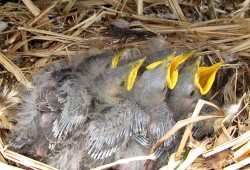I find it impossible to keep up with all your book suggestions, to say nothing of keeping up with the reading. I read slowly, so I am amazed at how much some of you can get through. Here are some recommendations from the last few months (note that some don’t include the author.)
- Ordinary Grace, by William Kent Krueger (Barbara Douglass)
- Just Mercy,
- Ghettoside,by Jill Leovy
- In the Country, by Mia Alvar, short stories about the Philippines and Filipinos in the global labor force
- The Museum of Extraordinary Things, by Alice Hoffman
- When the Moon is Low, by Nadia Hashimi, about an Afghani family’s trek as refugees through Asia and Europe to get to England
- They Don’t Mean to But they Do, by Catherine Schine – a lighter book about aging in New York and family relations.
- We Do Our Part ,by Charles Peters. A comparison of the the can-do, generous
spirit of the 30s, 40s, and 50s to the selfish, personal gain attitude of
the present day. It would make an excellent discussion book. (Sue Carr) - Being Mortal, by Atul Gawande
- The Circle by Dave Eggers
- Everything I Never Told You, by Celeste Ng
Judy Kennedy always writes the most interesting synopses of the books she’s read. Because I hate anything to do with zombies, and think I wouldn’t consider a book about zombies, her description here grabbed my attention and made me stop to think. Thanks, Judy, for your enthusiasm and willingness to share with us.
“Right now, I’m about 2/3rds through WORLD WAR Z: AN ORAL HISTORY OF THE ZOMBIE WAR by Max Brooks, my book club’s selection for February and recommended by one of our most thoughtful younger members (in her thirties I’d say) who has been trying to get us to read this for over a year. Lots of resistance from the more traditional older members of the group until a couple of us said “Okay, enough with dysfunctional families, let’s try something really outside our normal comfort read — afterall isn’t that what book clubs really are all about” — and the rest “bit” (pun intended). And, I for one, am so intrigued that I can hardly wait to get home at night to read more. It’s something of a slow starter because you need to get a little used to the idea of it all — i.e that there really was a Zombie War in our time (following the two Great Wars, the Korean War, Vietnam, and the Middle East engagements of recent times) when the “living dead” rose up, multiplied (they only had to bite someone else to create another Ghoul), and threatened the entire world as we know it with extinction. The book is told retrospectively through a hundred or so interviews of people who lived through it, reacted to it, either influenced the outcome or didn’t based on their own background and culture, from every country in the world. This really isn’t about zombies of course (there’s really nothing to learn about a zombie); it’s about fear and what it does to individuals and societies and their value systems –and makes you think about what it does and might do to you and to us and our country and world. (As my young colleague said to the rest of us, “if you aren’t into zombies, just replace them in your mind as you read the book with the embola virus.” It was that comment that final got the more conservative of our members to agree to make the book our Feb selection).



